Student Spotlight: Giovinco Isn’t Just Clowning Around
Michael Giovinco gave his first clown performance in middle school, strapping on the stilts that would allow him to follow …
Michael Giovinco gave his first clown performance in middle school, strapping on the stilts that would allow him to follow in his parents’ footsteps.
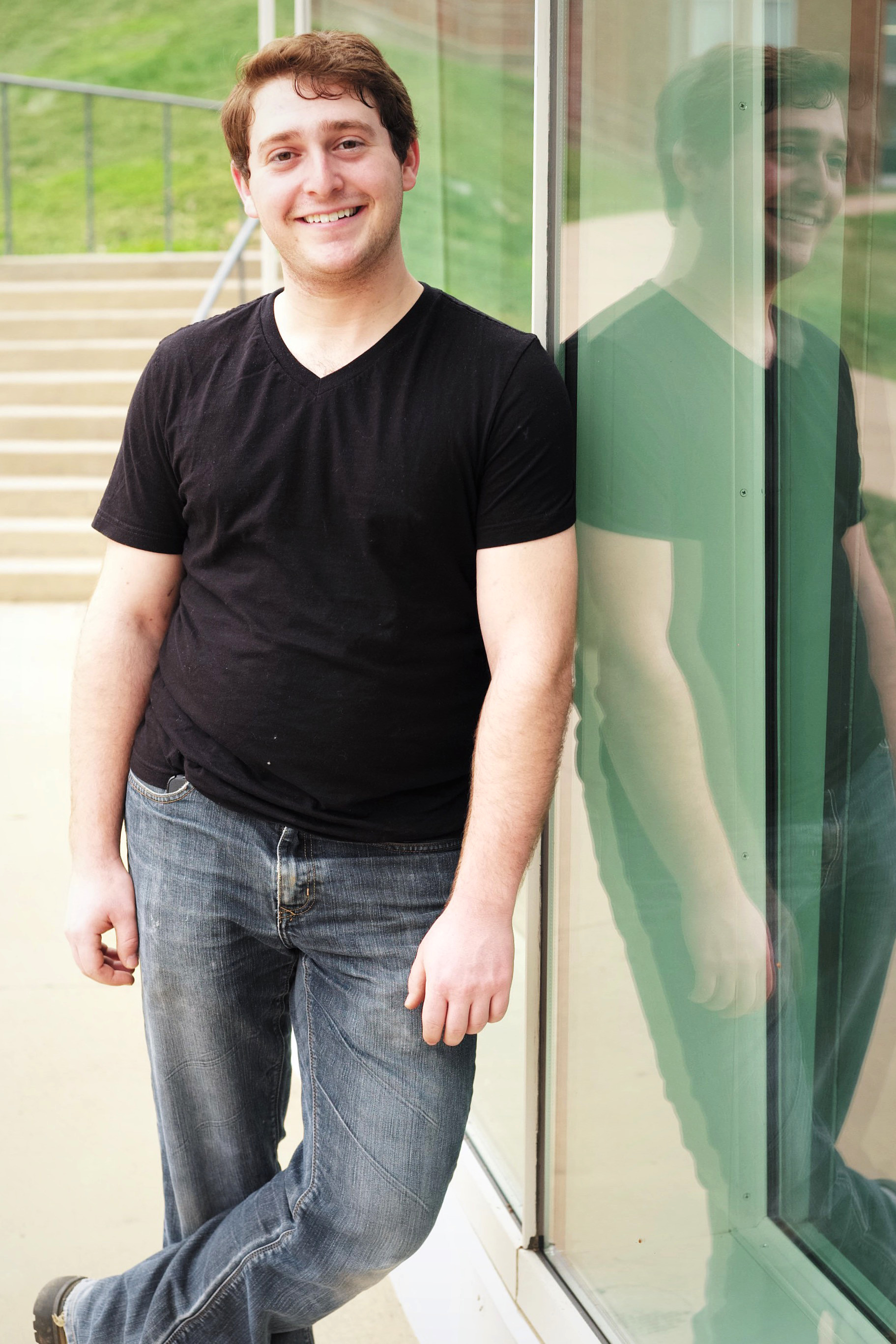 Michael Giovinco (Photo by Sanjay Suchak, University Communications)
Michael Giovinco (Photo by Sanjay Suchak, University Communications)
Giovinco is now a fourth-year student at the University of Virginia, where he is a Miller Arts Scholar majoring in drama and cognitive science. He grew up in New Jersey in a family of clowns. His father, Gerry, performs under the stage name “Captain Visual” and is well-known in the clown world for his books on balloon art. His mother, Shari, has performed under the stage name “Hoopla” and currently works as a nurse.
“I grew up going to different clown conventions, meeting folks from all walks of circus life,” Giovinco said.
Even as an elementary-schooler, Giovinco was walking on stilts, juggling and helping his parents put together gift bags to hand out at children’s parties or on the New Jersey boardwalks where the family performed. He became more and more immersed in the circus arts and, upon coming to UVA, joined the Virginia Circus Club, a student group that partners with Charlottesville’s Moonlight-Circus acrobatics troupe to practice and perform various circus acts.
“When I got to UVA, I discovered that there is a small bastion of circus life in Charlottesville, which I did not expect,” Giovinco said.
In a capstone project embodying both his upbringing and his studies at UVA, Giovinco spent much of the past year developing, writing and staging a devised circus show, “Grounded,” supported by grants from the Miller Arts Scholar program and the University Award for Projects in the Arts. Take a look.
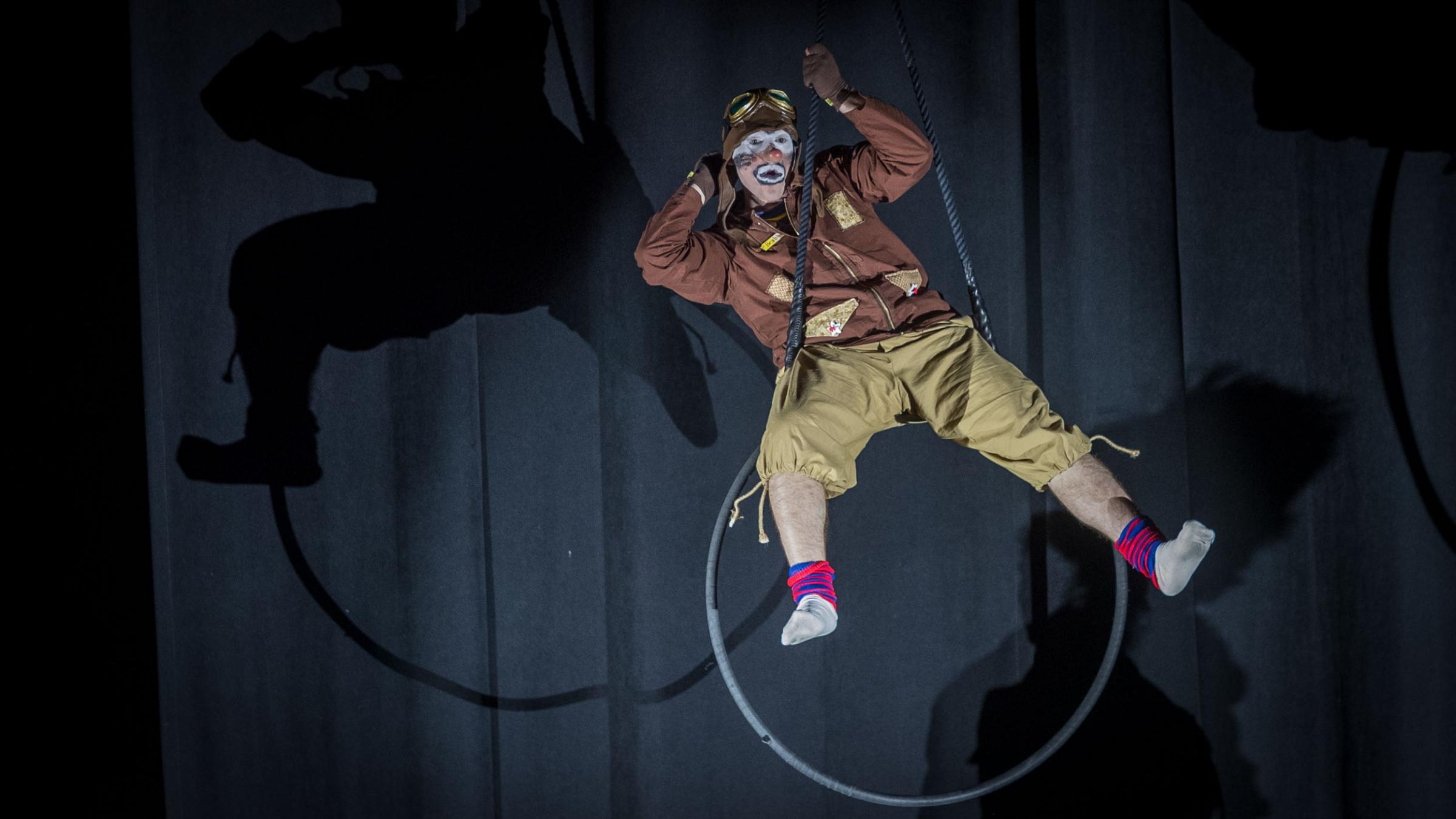
Giovinco, shown above in character, and his cast performed the show last weekend in front of two sold-out audiences, whose ranks included Giovinco’s parents.
For those two days, UVA’s Ruth Caplin Theatre became a colorful big top, strung with aerial silks supporting high-flying acrobats and featuring unicycling, stilt-walking, juggling and of course, clowning. About 15 cast members performed, including UVA students and local performers from Moonlight-Circus.
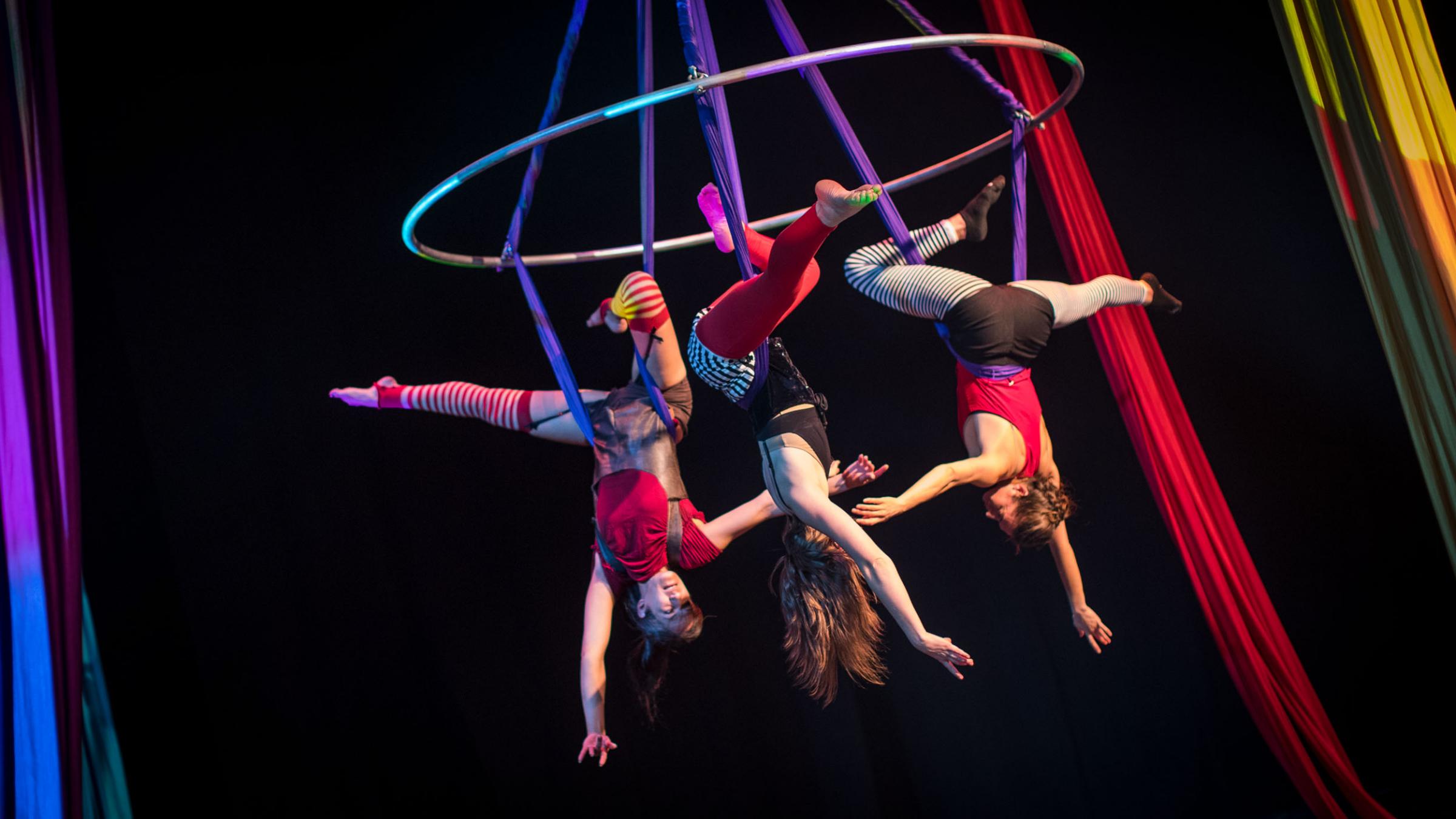
The narrative focused on two clowns: “Brabble,” played by Giovinco, and “Calliope,” played by second-year student and Miller Arts Scholar Emily Schmid. Their story, as Giovinco describes it, articulates the balance between traditional circus – a la the recently shuttered Ringling Bros. Circus – and cirque nouveau, embodied by groups like the Cirque de Soleil.
“Calliope pushes the boundaries of what the traditional clown, Brabble, is willing to do,” Giovinco said. “The crux of the show explores where traditional and new circus meet and asks where circus is going next, topical given that Ringling decided to close its doors.”
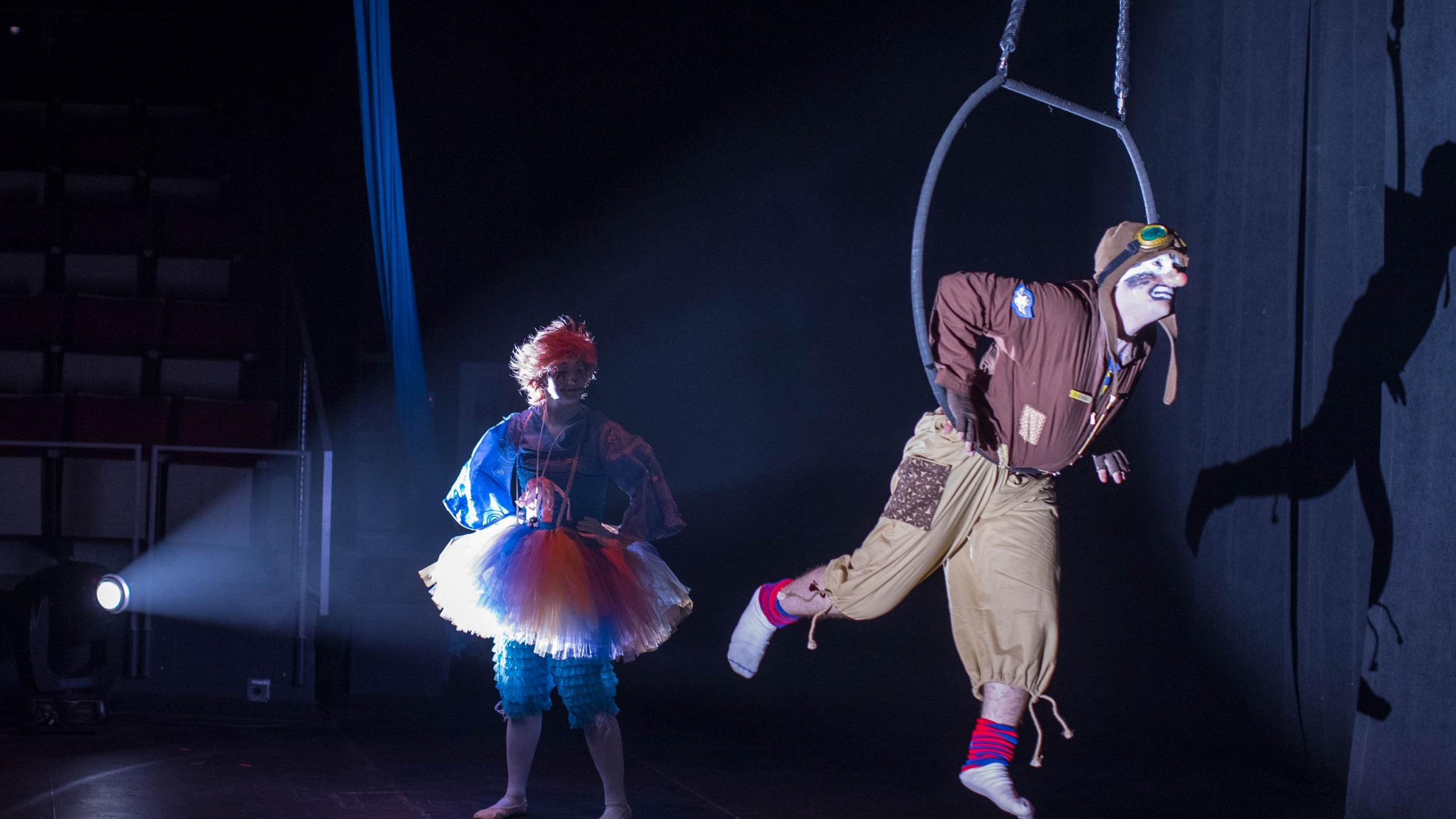
Ringling Bros., which announced its closing in January after 146 years of circus performing, provided a middle ground between itinerant circuses that set up their tents in fields around the country and higher-brow, pricier performances like Cirque de Soleil.
“Ringling Bros. and the Big Apple Circus [also closed] were pretty much the two middle-brow circuses in America, so it’s sad to see that go,” he said. “I don’t know if it will be a permanent closure. Who knows? Maybe someone will start it back up.”
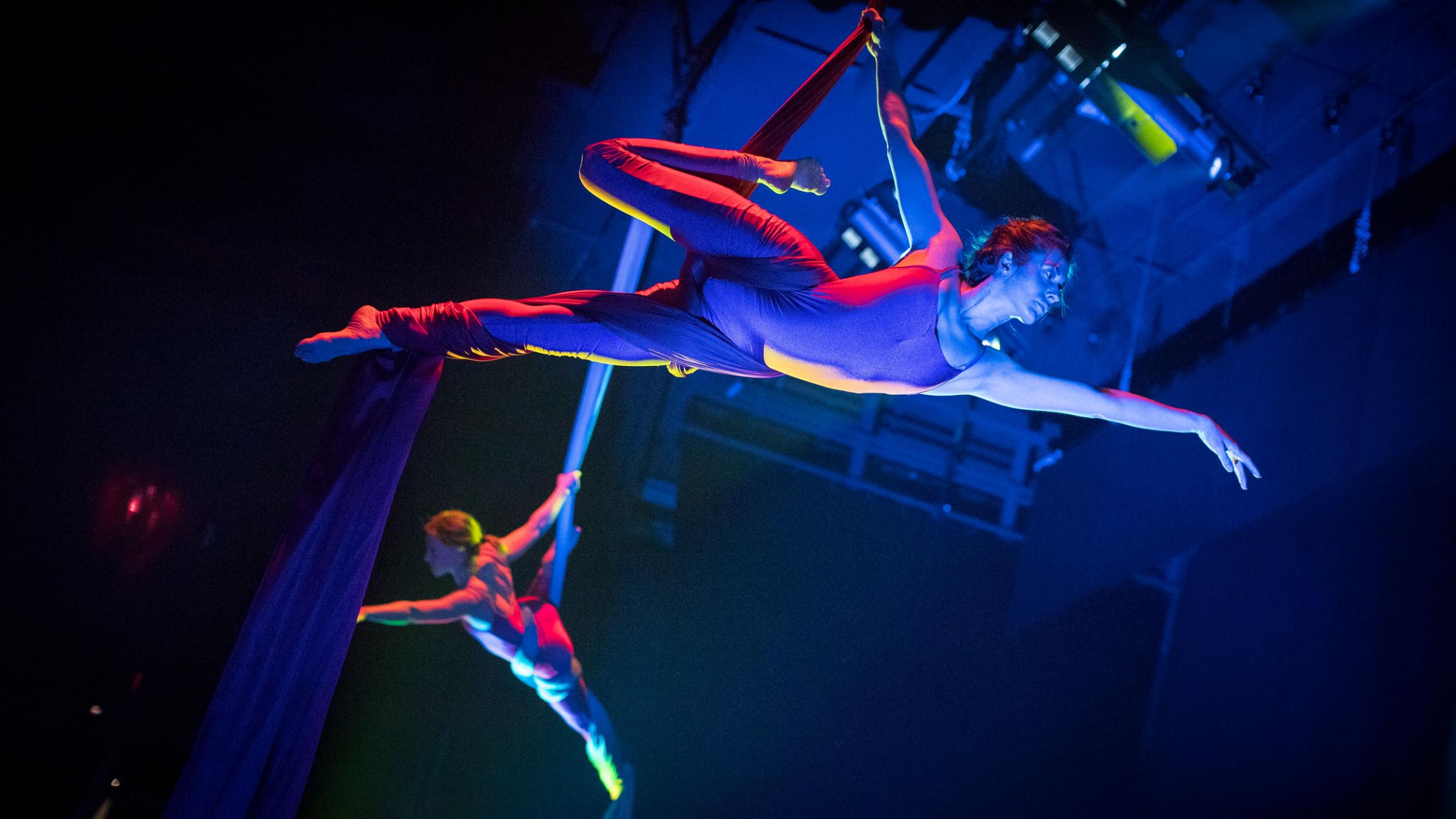
Despite these closures, Giovinco is confident that “the circus arts are still very much alive,” both in traditional forms and more modern interpretations.
He spent his summer perfecting various acts at the Philadelphia School of Circus Arts before returning to Charlottesville to create “Grounded.” Many of his fellow students were excited for the new performance opportunities, and drama faculty members Steven Warner and Marianne Kubik were eager to serve as advisers on the project. Inspired by the concept of devised theater – which features scripts co-created by several performers instead of a writer or writers – the whole group worked together to build the show’s story, collaborating and improvising until they had something they were happy with.
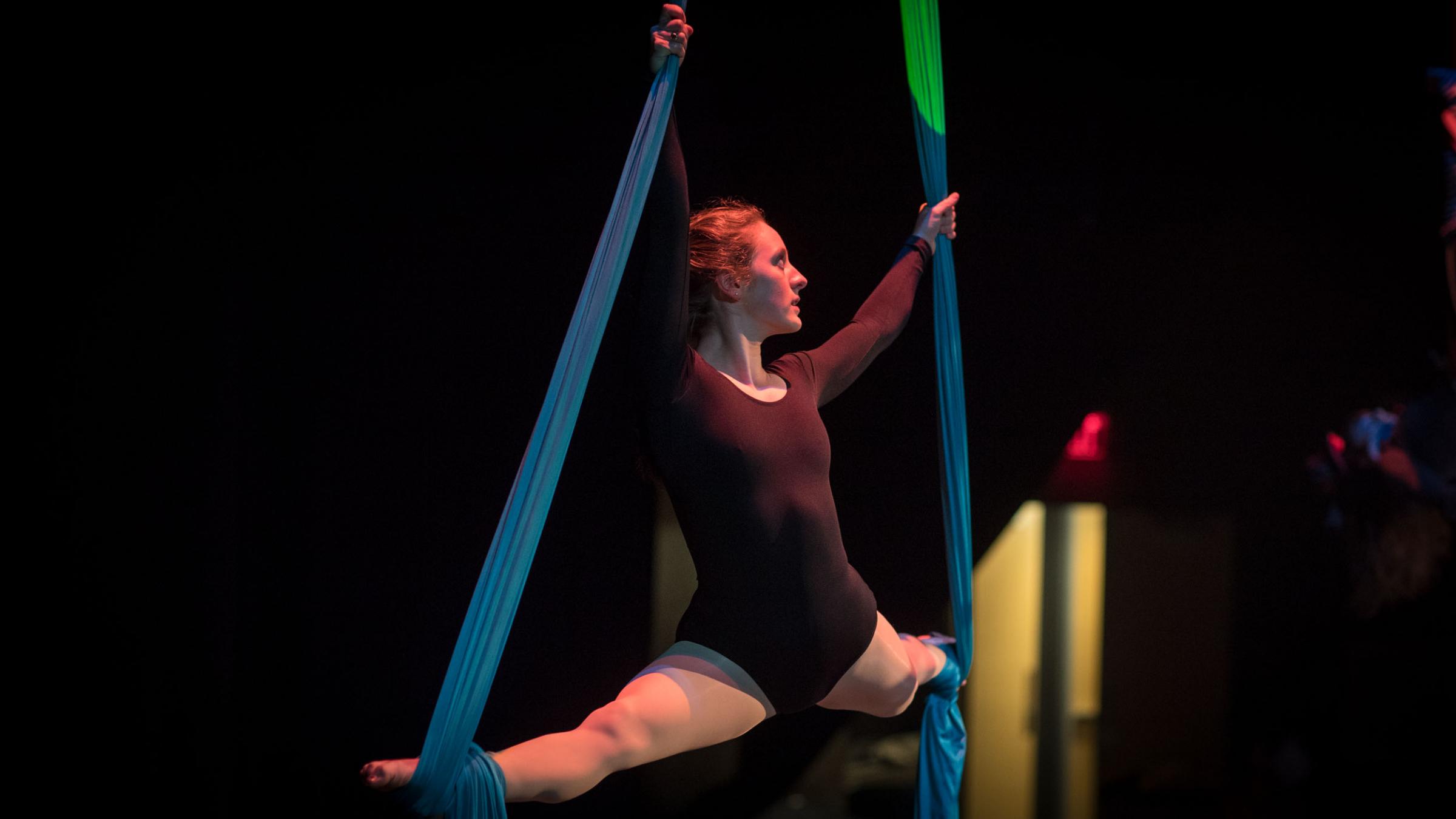
The devised approach fits perfectly with Giovinco’s vision of the circus as an example of liberal arts education.
“Most circus performers focus on one specific apparatus, but I like to do a little bit of everything, because clowns in the circus are expected to know a little bit of everything,” he said, noting that his study of cognitive science has helped him understand how the brain perceives different signals and instructs the body to move.
Giovinco also hopes that the show will spark discussions about how the circus arts fit into academia.
“LaVahn Hoh [a professor emeritus of circus history] has done a great job of that over the years at UVA, and now that he has retired, this is a great way to help push circus into the academic performance environment.”
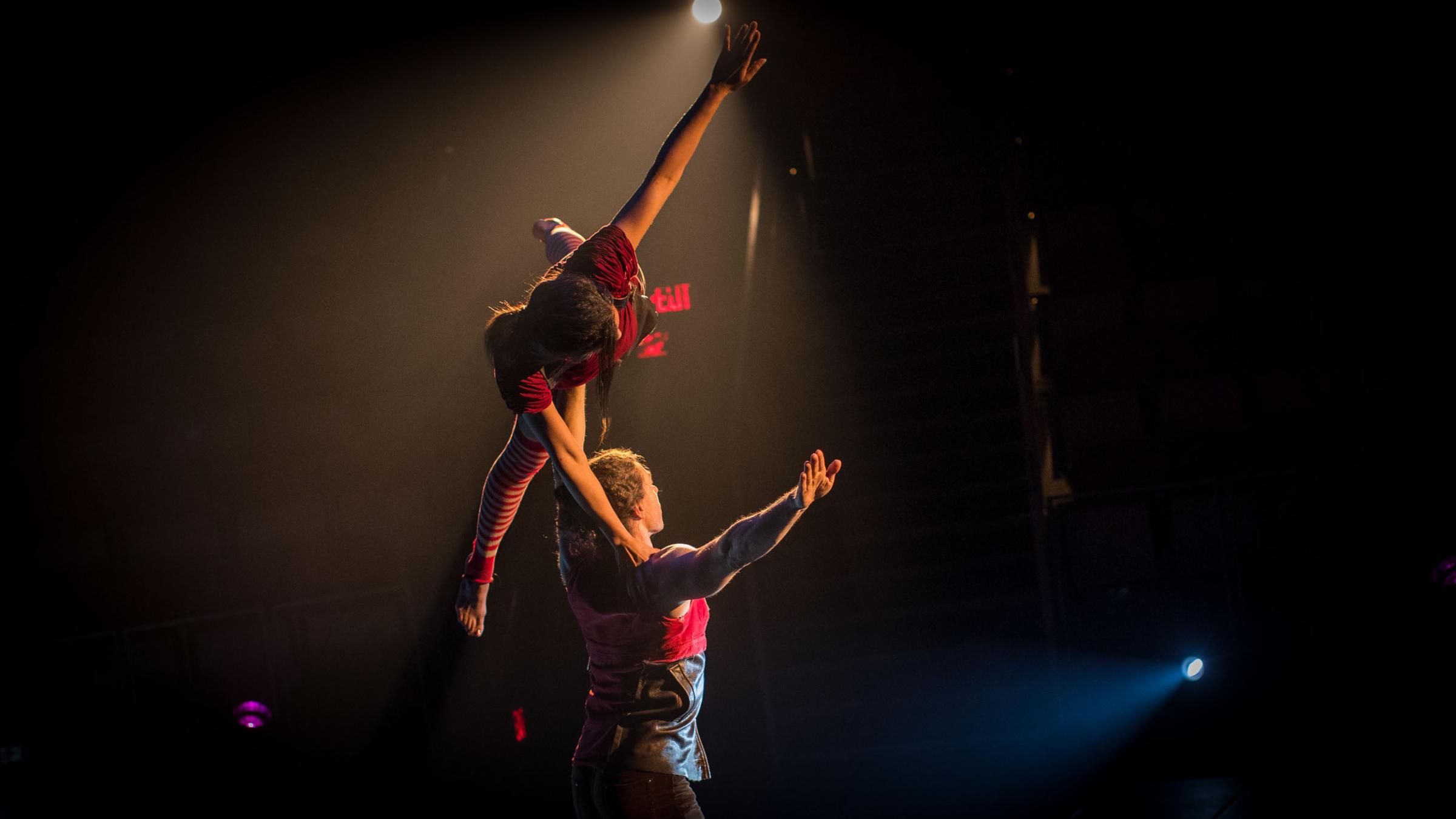
After graduation, Giovinco plans to pursue a graduate degree in theater movement after taking a gap year, perhaps working on the technical staff of cruise ship productions.
“I’d like to get out there, meet a bunch of new people and gain some experiences that I can bring back to graduate school,” he said.
Ultimately, he hopes to become a professional movement director, working closely with a show’s director and cast to plan and execute choreography, acrobatics and other movements.
“The job can be very versatile,” he said. “I could work on shows with circus elements and focus on the safety and execution of those movements. Or I could work on puppetry, staged combat or choreography for musicals and other pieces.”
Original Publication: UVA Today
You are using an old version of Internet Explorer. Our site is developed with the latest technology, which is not supported by older browsers
We recommend that you use Google Chrome for accessing our (or any) website. It is a FREE and modern web-browser which supports the latest web technologies offering you a cleaner and more secure browsing experience.